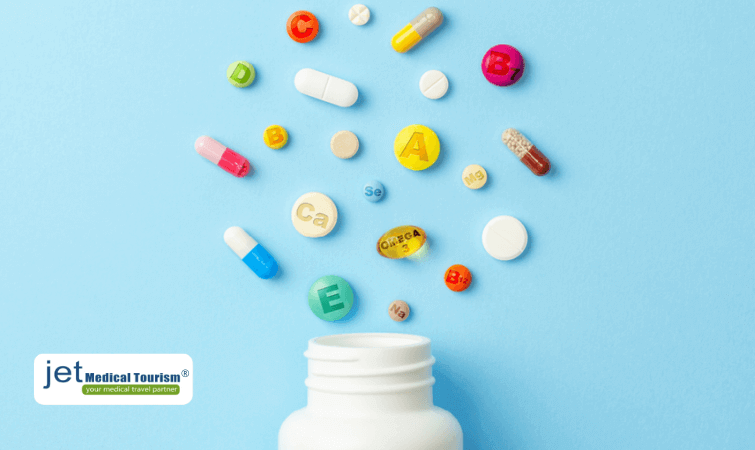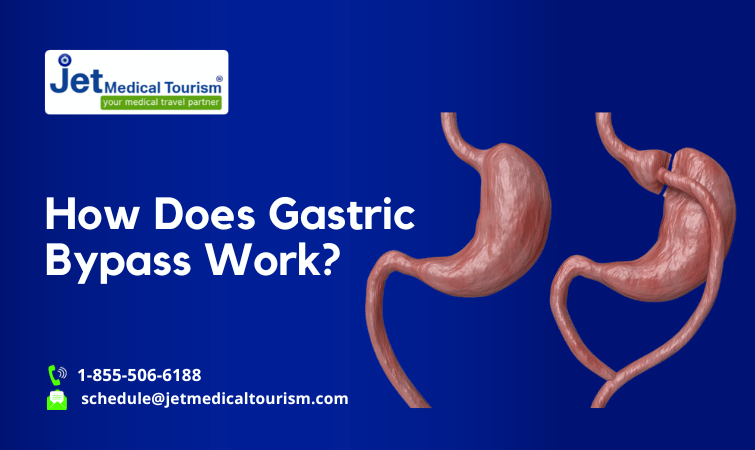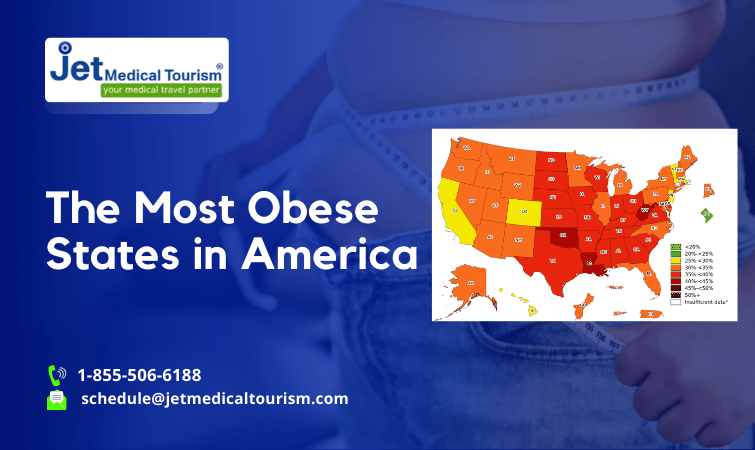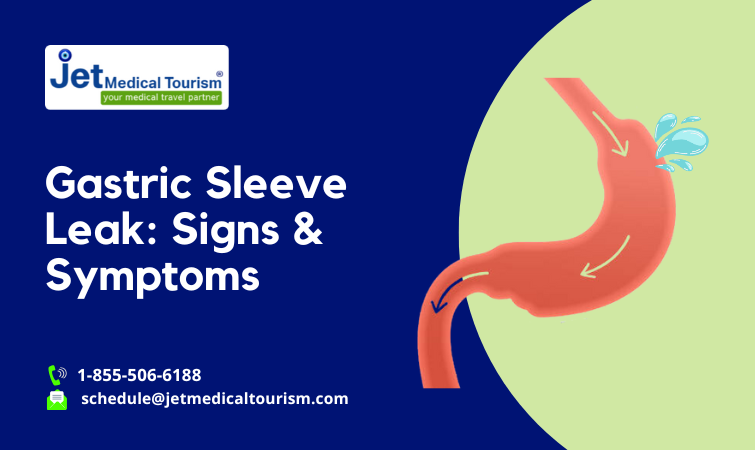Best Bariatric Vitamins to Take After Bariatric Surgery
Bariatric surgery is designed to help you achieve substantial weight loss by reducing your capacity to eat and curbing your body’s calorie absorption. However, this process increases your risk of nutritional deficiency because your natural daily consumption and absorption of essential nutrients is likely to diminish. Post-surgery bariatric vitamins can counter this risk and keep your body’s nutritional balance intact.
Bariatric vitamins chewable, liquid or in pill form are usually available without prescription. The surgeon or dietitian will recommend the best over the counter vitamins for bariatric patients according to their needs. Best vitamins after gastric sleeve may be slightly different from the vitamins after gastric bypass.
Make sure to follow your surgeon’s advice and choose the best bariatric multivitamins after your weight loss surgery. Contact Jet Medical Tourism® in Tijuana, Mexico to learn more about safe and affordable bariatric surgery options.
Vitamins after bariatric surgery: An overview
Vitamin deficiency after bariatric surgery is a common problem, which can be avoided with a regular use of bariatric vitamins in the right proportion. Recommended vitamins after bariatric surgery will supplement your daily nutritional intake when you are eating less and your body is absorbing less nutrients. Not taking vitamins after gastric sleeve or gastric bypass can result in serious illnesses over time.
Benefits of chewable and liquid bariatric vitamins
- Regulate your body’s natural metabolic rate
- Maximize your nutrient absorption
- Help in energy storage to keep you active all day long
- Correct your carbohydrate and fat metabolism
- Increase your brain activity and improve mental health
- Increase your bone density for stronger bones
- Promote muscle building and maintenance
- Improve your cardiovascular health
VSG and gastric bypass vitamin schedule recommendations
- The American Society for Metabolic and Bariatric Surgery (ASMBS) has issued guidelines for gastric bypass and gastric sleeve vitamin schedule
- Follow these guidelines in consultation with your surgeon or nutritionist to fight off the risk of vitamin deficiency with weight loss surgery
- Consume the best bariatric vitamins chewable, liquid or pill in the recommended amounts to prevent vitamin deficiency after bariatric surgery
- Recommendations for best vitamins for gastric sleeve patients will differ from the vitamins to take after gastric bypass surgery, so follow a custom plan
- Best over the counter vitamins for bariatric patients should ideally be chosen in consultation with your dietitian or surgeon to ensure safe outcomes
What are the best vitamins to take after bariatric surgery
The best bariatric multivitamin will contain all the essential vitamins as well as minerals to mitigate your risk of gastric sleeve and gastric bypass vitamin deficiency. Nutritional gaps are easier to fill with solid or liquid bariatric vitamins.
- Best supplements: Recommended vitamins after bariatric surgery include vitamin B12, vitamin C with iron, vitamin D with calcium, vitamin B6, folate, potassium, and complete bariatric multivitamins.
- Vitamin B12: This is one of the best vitamins for bariatric patients when it becomes harder for your stomach to naturally release B12 as part of the digestive process. It will boost your energy levels and fortify immunity.
- Calcium: Best bariatric vitamins after gastric sleeve or gastric bypass must be supplemented with calcium in the form of calcium carbonate or calcium citrate. It is vital to support your bone, nerve, and muscle function.
- Other vitamins: What vitamins are needed after bariatric surgery in addition to the core micronutrients will depend on your type of procedure, your medical history and the results of your pre-op bloodwork.
Related: 3 month pre bariatric surgery diet
Vitamins after gastric sleeve surgery
Gastric sleeve surgery will result in the removal of about 80% of your original stomach tissue. It will also make changes to your gut biome. While these changes induce weight loss, they will also reduce the formation of gastric juices in your stomach pouch to break down essential nutrients. For this reason, you should protect against vitamin deficiency after gastric sleeve by taking the best bariatric vitamins.
Not taking vitamins after gastric sleeve surgery can cause diseases, such as rickets, scurvy, pernicious anemia, beriberi, osteomalacia, pellagra, dementia, extreme fatigue, hypocalcemia, protein energy malnutrition, nerve and muscular paralysis, iron deficiency, skin disease, hair loss, and xerophthalmia. If you notice symptoms of vitamin deficiency after gastric sleeve, report to your surgeon immediately for corrective measures.
Best vitamins for gastric sleeve patients
Bariatric vitamins after gastric sleeve usually include vitamin B12, iron with vitamin C, calcium and vitamin D, and the best bariatric multivitamin that meets your needs as per your bloodwork reports.
- Vitamin B12: This is the one of the best vitamins to take after gastric sleeve. Your surgeon may recommend a minimum daily dose of 500 mcg. B12 bariatric vitamins chewable tablets are more popular.
- Calcium: Best vitamins for gastric sleeve patients must be supplemented with about 1500 mg of calcium per day. Your nutritionist may recommend it in three daily doses of 500 mg each with the three major meals.
- Iron: The best vitamins to take after gastric sleeve should include an additional iron supplement, if your bariatric multivitamin is without iron. In general, you may need a daily dose of 18 to 20 mg per day.
Gastric sleeve vitamin schedule
Choosing the best vitamins for gastric sleeve patients is not enough. For best patient outcomes, it is essential to take these bariatric vitamins in the right proportion at appropriate intervals during the day. Your weight loss surgeon will recommend a gastric sleeve vitamin schedule, which you should diligently follow for best results.
- Nutrient absorption will reduce if you take all vitamins at once
- Chronic disregard of the VSG vitamin schedule will cause deficiencies
- Skipping vitamins after gastric sleeve may lead to serious illness
- Choose calcium citrate instead of carbonate in your gastric sleeve vitamin schedule
- Avoid drinking caffeinated beverages for at least one hour following your vitamin dose
- Adjust your gastric sleeve vitamin schedule if you have kidney, liver, or heart disease
Vitamin deficiency after gastric sleeve
Even the best vitamins for gastric sleeve patients will fail to work if you do not follow the prescribed schedule. Vitamin deficiency after gastric sleeve is a common problem, which can interfere with your long-term weight loss plans. Stay alert to the symptoms of vitamin deficiency after gastric sleeve. Here are some of the key reasons why deficiencies may occur.
- You are taking non-approved bariatric vitamins
- You are skipping your scheduled doses of VSG vitamins
- You are not taking the gastric sleeve vitamins in the right amount
- You have not maintained your follow-up bloodwork lab tests
- You are using low quality bariatric vitamins chewable or liquid
- You have a chronic disease that is causing low vitamin absorption
Not taking vitamins after gastric sleeve
The primary cause of post-bariatric nutritional deficiency is not taking vitamins after gastric sleeve surgery. Bariatric vitamins for gastric sleeve patients should be decided in consultation with the surgeon and a certified dietitian. Not taking vitamins after gastric sleeve as recommended by the surgeon may sometimes lead to the following illnesses.
- Vitamin B1 (Thiamine) deficiency can cause beriberi disease
- Vitamin B2 (Riboflavin) deficiency can cause nerve, eye, skin problems
- Vitamin B3 (Niacin) deficiency can cause pellagra disease
- Vitamin B4 (Biotin) deficiency can cause hair loss and dry skin
- Vitamin B5 (Pantothenic acid) deficiency can cause fatigue
- Vitamin B6 deficiency can cause anemia, dermatitis, insomnia
- Vitamin B12 deficiency can cause leucopenia, glossitis, nerve damage
Vitamins after gastric bypass
Gastric bypass surgery is designed to reduce your calorie and nutrient absorption because a significant part of the small intestine will be bypassed when you eat food. Therefore, chewable or liquid bariatric vitamins are required lifelong for gastric bypass patients. In the first month post-surgery, the vitamins after gastric bypass should not be taken in gel capsule form to avoid the risk of blockages.
Vitamins after gastric bypass may include a sublingual dosage or a shot of vitamin B12. Following the surgery, the new gastric pouch will be separated from the remainder of your stomach. Therefore, the B12 vitamin is unable to attach itself to the protein cascade that is essential for its absorption in the small intestine. A supplemental dose of B12 after gastric bypass will solve this problem as the vitamin goes directly into the bloodstream.
Best vitamins to take after gastric bypass
Best vitamins to take after gastric bypass surgery include vitamin B12, vitamin C and iron, vitamin D with calcium, and vitamin D. However, some of the critically important minerals and other micronutrients may not be supplemented just with these vitamins after gastric bypass. Therefore, your surgeon may recommend the best bariatric multivitamin to plug the gaps in your nutrition.
The best vitamins to take after gastric bypass surgery typically include:
- Multivitamin: A high-potency multivitamin with essential vitamins and minerals, including iron, calcium, vitamin D, vitamin B12, and folate, is crucial to prevent deficiencies.
- Calcium: Calcium citrate supplements are recommended as calcium absorption is affected after gastric bypass surgery. Adequate calcium intake is essential for bone health.
- Vitamin D: Vitamin D is essential for calcium absorption and overall bone health. Many post-bariatric surgery patients require vitamin D supplements.
- Vitamin B12: Gastric bypass can hinder vitamin B12 absorption. Sublingual or intramuscular B12 supplements are often necessary to prevent deficiency.
- Iron: Iron supplements may be needed to prevent anemia, especially if you experience iron malabsorption.
- Folate (Folic Acid): Folate is crucial for cell division and the prevention of neural tube defects. It’s often included in multivitamins, but additional supplementation may be required.
- Vitamin A: Vitamin A is essential for vision, immune function, and skin health. Some individuals may require supplementation.
- Vitamin K: Vitamin K helps with blood clotting. Depending on your diet and absorption capacity, you may need vitamin K supplements.
- Thiamine (Vitamin B1): Thiamine supplements are sometimes recommended to prevent deficiency, especially if you experience nausea, vomiting, or malabsorption.
It’s important to work closely with your healthcare provider or a registered dietitian to determine your specific vitamin and mineral needs after gastric bypass surgery. Regular blood tests can help identify deficiencies and guide your supplementation plan to ensure optimal health and nutrition.
Related: Gastric bypass post op diet
Gastric bypass vitamin schedule
Your weight loss surgeon along with their nutritionist consultant will recommend a customized gastric bypass vitamin schedule based on the results of your bloodwork. To improve compliance, your surgeon may suggest a few different options for your bariatric vitamin schedule. These may include:
- Schedule 1: A complete gastric bypass multivitamin that includes both iron and calcium may be the simplest option to follow. Depending on your needs, you may take these chewable or liquid bariatric vitamins 4 times a day.
- Schedule 2: This gastric bypass vitamin schedule may include bariatric multivitamin with B12 (500 mcg) and iron (18 mg). In addition, a calcium citrate dose of 1500 mg daily may be recommended in chewable tablet or pill form.
- Schedule 3: If your surgeon determines that you need more of B12 bariatric vitamins, they may recommend a gastric bypass vitamin schedule that includes a multivitamin with iron (18 mg), calcium citrate (1500 mg) and vitamin B12 (500 mg) daily.
- Schedule 4: When addition reinforcement of both B12 and iron is required, your gastric bypass vitamin schedule may include multivitamin, iron (18 mg), vitamin B12 (500 mcg), and calcium citrate (1500 mg) per day for best results.
Gastric bypass vitamin deficiency
Gastric bypass vitamin deficiency refers to a condition in which individuals who have undergone gastric bypass surgery develop insufficient levels of certain vitamins in their bodies. Gastric bypass surgery alters the digestive system, primarily by creating a smaller stomach pouch and rerouting a section of the small intestine. While this procedure is effective for weight loss, it can affect the body’s ability to absorb essential vitamins and minerals, leading to deficiencies.
The most common vitamin deficiencies associated with gastric bypass surgery include:
- Vitamin B12 Deficiency: The surgery can impair the absorption of vitamin B12, which is essential for nerve function and the production of red blood cells. A deficiency can lead to anemia, fatigue, and neurological problems.
- Vitamin D Deficiency: Gastric bypass can reduce the absorption of vitamin D, crucial for calcium absorption and bone health. Vitamin D deficiency can result in weak bones, fractures, and other skeletal issues.
- Calcium Deficiency: Calcium absorption is also hindered after gastric bypass surgery, potentially leading to osteoporosis and weak bones.
- Iron Deficiency: Impaired absorption of iron can lead to iron-deficiency anemia, causing fatigue, weakness, and pale skin.
- Folate (Folic Acid) Deficiency: Folate is essential for cell division and preventing neural tube defects during pregnancy. Deficiency can lead to anemia and other health problems.
- Vitamin A Deficiency: Reduced absorption of vitamin A can impact vision, immune function, and skin health.
- Vitamin K Deficiency: Vitamin K is necessary for blood clotting, and its deficiency can result in bleeding issues.
- Thiamine (Vitamin B1) Deficiency: Thiamine deficiency can lead to neurological problems, such as Wernicke-Korsakoff syndrome.
Preventing and managing these deficiencies typically involves taking vitamin and mineral supplements as prescribed by a healthcare provider. Regular monitoring and blood tests are essential to identify and address deficiencies promptly. Patients who have undergone gastric bypass surgery should work closely with their medical team to develop a personalized supplementation plan and ensure they receive adequate nutrition to maintain their health and well-being.
Liquid bariatric vitamins vs chewable bariatric vitamins: Which one is good for me?
Bariatric vitamins can usually be formulated in both chewable tablet and liquid forms. Depending on your age, health condition, personal preferences, and the surgeon’s opinion, you may choose between chewable bariatric vitamins vs. liquid bariatric vitamins. Here are some of the salient benefits of both options that should help you make an appropriate choice.
Advantages of bariatric vitamins chewable
- Ingredients in chewable bariatric vitamins are more stable
- When delayed absorption is necessary, chewable or pill form is better
- Direct ingredient delivery to intestine without digestion in the stomach is possible
- Refrigeration is not required for chewable tablet vitamins
- Bariatric vitamins in chewable or pill form are easy to carry during travel
Advantages of liquid bariatric vitamins
- Full and fast release of the ingredients is easier with liquid vitamins
- Liquid bariatric vitamins are easier to swallow for older patients
- Liquid form is preferable if you have digestive troubles after bariatric surgery
- Dose modification is easier when you take liquid bariatric supplements
- Hygroscopic supplements such as magnesium work better in liquid form
Why no gummy vitamins after bariatric surgery

Gummy vitamins are available in chewable form. They are more popular because their color, flavor, shape, and texture resemble that of gummy candies. However, gummy vitamins are not the best over the counter vitamins for bariatric patients. While you may feel tempted to choose them over pills or tablets, it is important to understand why no gummy vitamins after bariatric surgery are usually recommended.
- Gummy vitamins may not contain all the essential micronutrients you need after bariatric surgery
- Even if a gummy vitamin contains calcium, vitamin D or other essential vitamins, it may not be in recommended amounts
- In the long-term, exclusive dependence on gummy vitamins can cause malnutrition problems for bariatric patients
- Artificial flavors and colors in gummy vitamins may not suit bariatric patients who are still healing after the surgery
- Poor digestive tolerance in some patients is one of the reasons why no gummy vitamins after bariatric surgery are recommended
Bariatric prenatal vitamins
If you are pregnant or planning to have a pregnancy after your bariatric surgery, you will need bariatric prenatal vitamins to maintain healthy nutrition levels for you and your body. In general, your regular bariatric vitamins will sufficiently cover your requirement because the dosage of these vitamins is already higher than what you need during pregnancy.
However, in specific cases, your surgeon in consultation with your obstetrician may recommend specific bariatric prenatal vitamins. If you are at the risk of anemia due to pregnancy, an additional iron dose or an omega-3 supplement may be added to your existing bariatric surgery vitamin schedule. Make sure the following ingredients are covered in your bariatric prenatal vitamins in adequate amount:
- Iron
- Vitamin B12
- Vitamin C
- Vitamin D
- Vitamin B6
- Calcium citrate
- Folate
- Copper
- Zinc
Best bariatric multivitamins for bariatric patients

Taking multiple micronutrient pills, tablets or liquids daily in the precise amounts and as per the exact schedule may not be easy for some patients. To ensure compliance, your surgeon may recommend the best bariatric multivitamins, which are an all-in-one solution for your daily nutrition supplement needs. Here are some of the key ingredients which are included in the best bariatric multivitamins.
- Vitamin B12: This is vital to regulate your nervous system activity and brain function. A deficiency may cause a memory slowdown and other risks.
- Vitamin D + Calcium: These are critical to maintain your bone health, strong teeth, and energy levels. Severe deficiency can cause osteoporosis.
- Iron: Oxygen supply in your bloodstream is regulated with iron. Weakness, fatigue and acute anemia may occur if you have a deficiency of iron.
- Folic acid: In combination with vitamins B12 and B6, folic acid will help in mitigating your risk of stroke and will work to improve your heart health.
- Zinc: This is a strong immunity booster, which will help you ward off infections after bariatric surgery, and minimize the risk of pneumonia.
Need more information on bariatric vitamins?
Bariatric surgery is not just a procedure to help you shed off excess pounds and reclaim a proportionate, attractive figure. With good nutrition and the right back-up of bariatric vitamins, it can keep you fit and healthy for decades to come. If you are ready for a long, fulfilling, and disease-free life after your weight loss surgery, stay committed to your recommended bariatric vitamins and be in charge of your own health and beauty.
For more information about your gastric sleeve or gastric bypass vitamin schedule, consult with a bariatric surgeon today. Accomplished and resourceful surgeons will have an in-house team or a network of nutrition consultants who can provide you professional guidance and support. Bariatric vitamins are an essential element in your post-surgery toolkit to lead a healthy, happy, and wholesome life.







